You have an array of JSON objects coming back from a REST API, that looks like this –
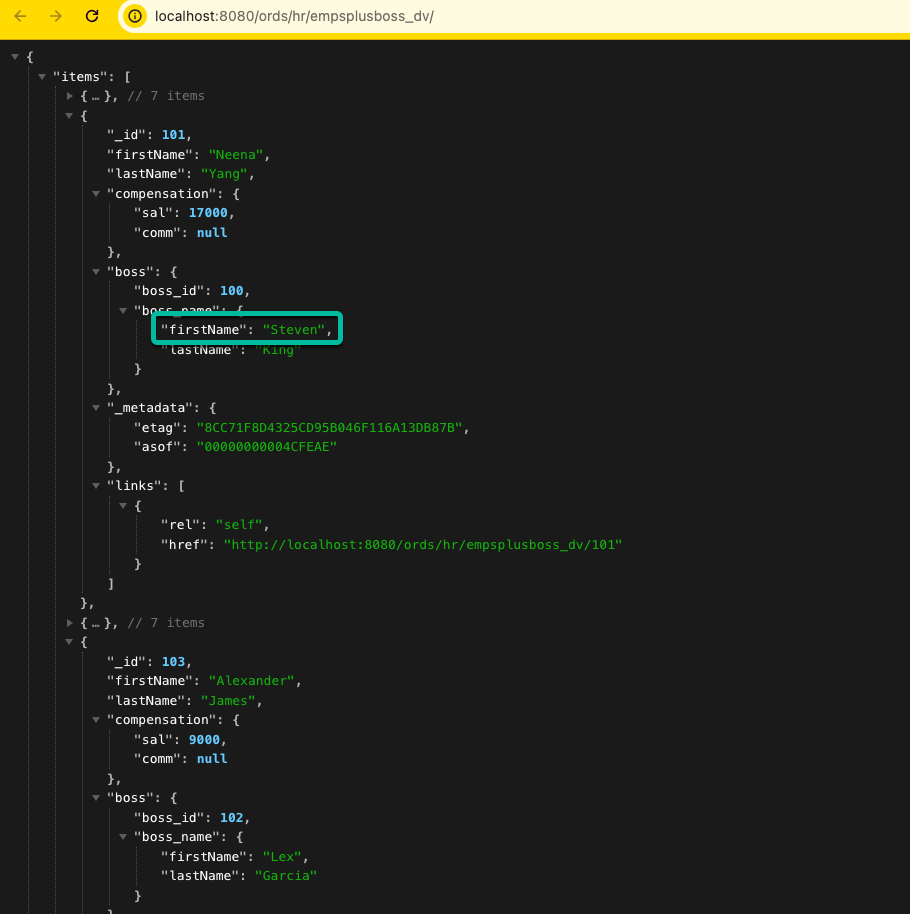
Because my DV has been REST Enabled (same process for any view or table), I can simply GET the data using the ords/hr/empsplusboss_dv/ endpoint.
How can we just get employees whose boss’ first name is Steven?
While it might be obvious to solve this in SQL, I want you to see how easy it is to do via REST and using our built-in filtering feature.
For this post, I will assume you know:
- 23ai is our latest version of Oracle Database
- one of it’s major features is JSON Relational Duality Views
- ORDS provides REST API support via AutoREST
- you can easily build them via SQL Developer extension for VS Code
Our Duality View
I’m going to use the same example I’ve been tinkering with lately, a DV with a self-join on EMPLOYEES. This DV provides an array of employees objects, with their manager’s name attached.
When I was building this in VS Code, it looked a bit like this –
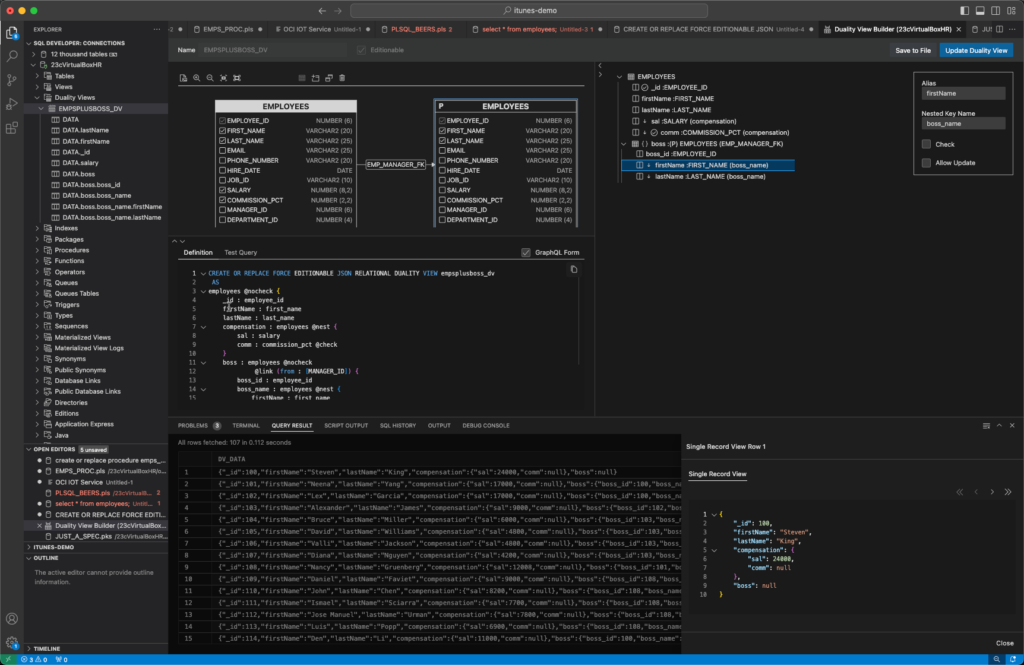
GET all the employees, and their boss via the DV
It’s good to start at ‘the root,’ or by doing a GET on the base object, like so –
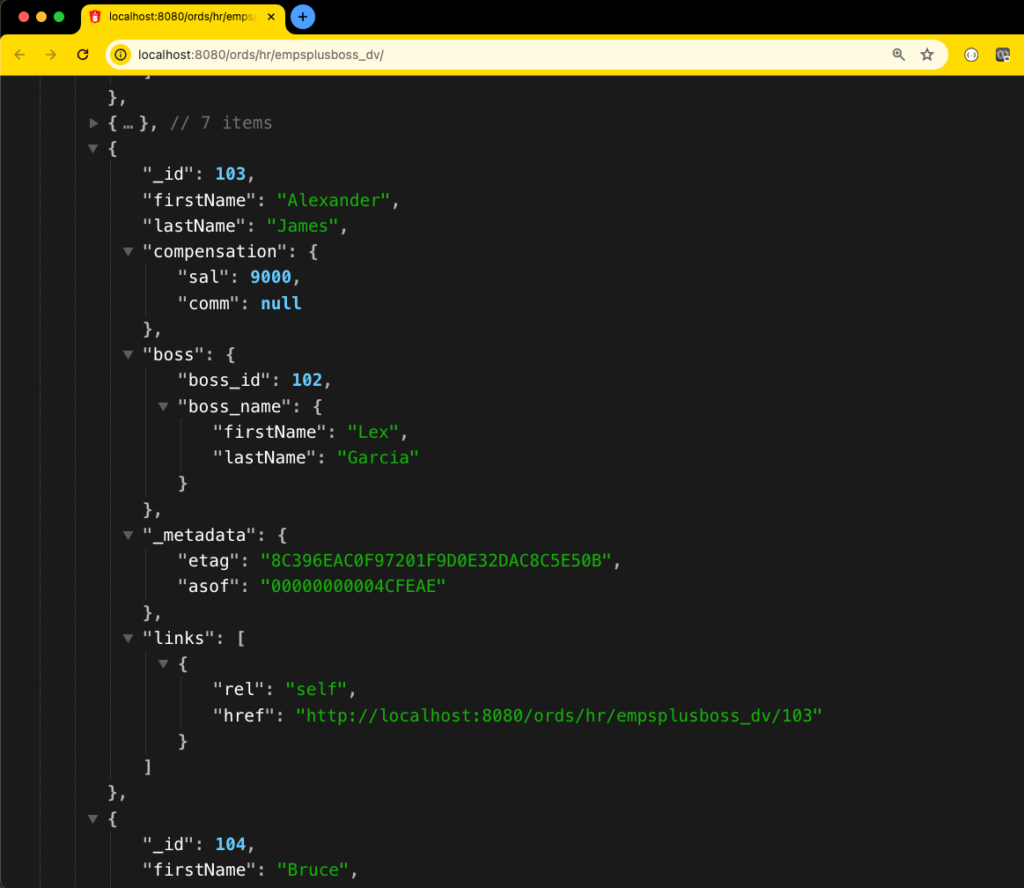
But, I only want the employees whose boss’ first name is ‘Steven.’ How do I do that? It’s very similar to what I’ve shown multiple times before, and have even called it ‘my very favorite ORDS feature!‘
If we were working with a relational object like a TABLE or VIEW, for example the EMPLOYEES table, and I didn’t want all employees, I can simply –
GET ords/employees/?q={“job_id”:{“$like”:”%CLERK”},”salary”:{“$gt”:2899}}
Or in english/SQL,
SELECT *
FROM EMPLOYEES
WHERE JOB_ID LIKE '%CLERK'
and SALARY > 2899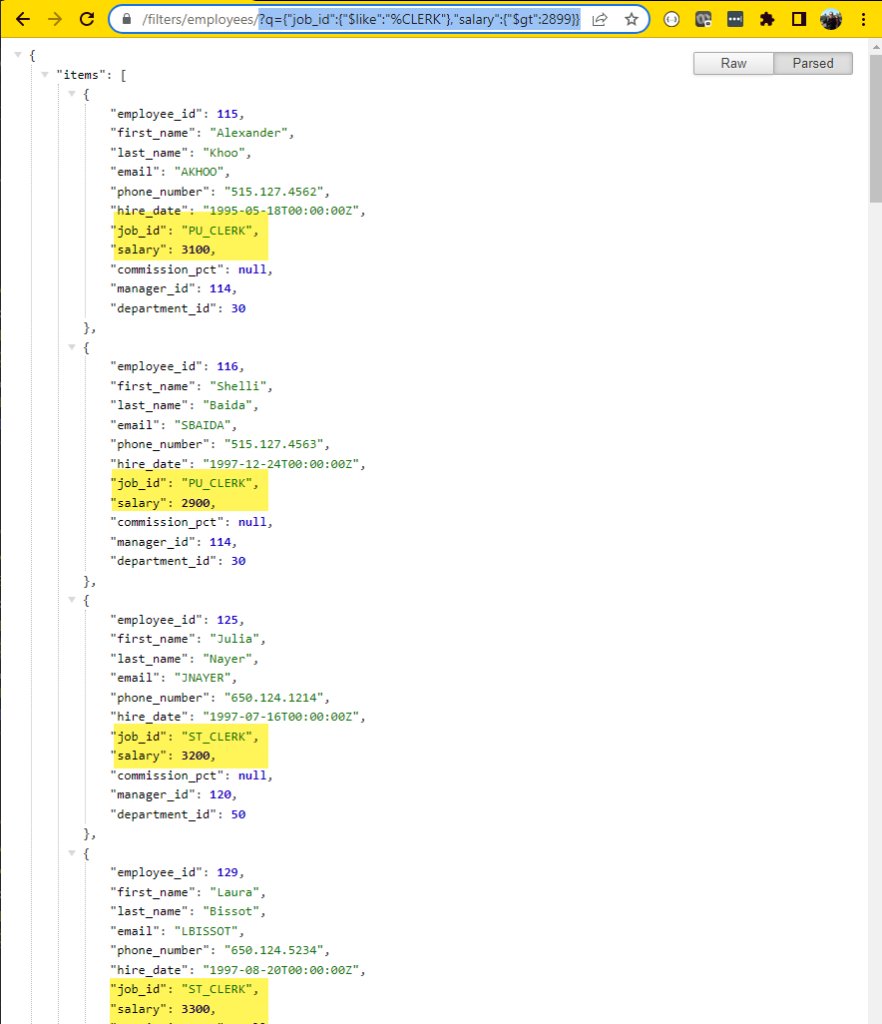
But we’re working with JSON objects now, and they can be complex, having arrays or objects, nested objects, etc. So we need a more powerful query language. But no worries, we have one!
Duality Views and filtering is a bit different…
{
"_id": 103,
"firstName": "Alexander",
"lastName": "James",
"compensation": {
"sal": 9000,
"comm": null
},
"boss": {
"boss_id": 102,
"boss_name": {
"firstName": "Lex",
"lastName": "Garcia"
}
}
}We have a object boss, that’s comprised of simple JSON value pair, followed by another object, boss_name.
To query this we will need to use the super-simple ‘Dot Notation’ that’s provided in the Oracle Database.
This line in the ORDS AutoREST docs confirms this, see –

Ok, so what is the ‘SODA extended QBE syntax?”
You’ll find the Docs for that, with examples, here.
I’ve blogged on this before, using movies stored in a SODA collection.
Putting it all together now
We want to do an equality filter on boss.boss_name.first_Name from our Duality View, these are easy to build, you just ‘walk the tree,’ more or less.
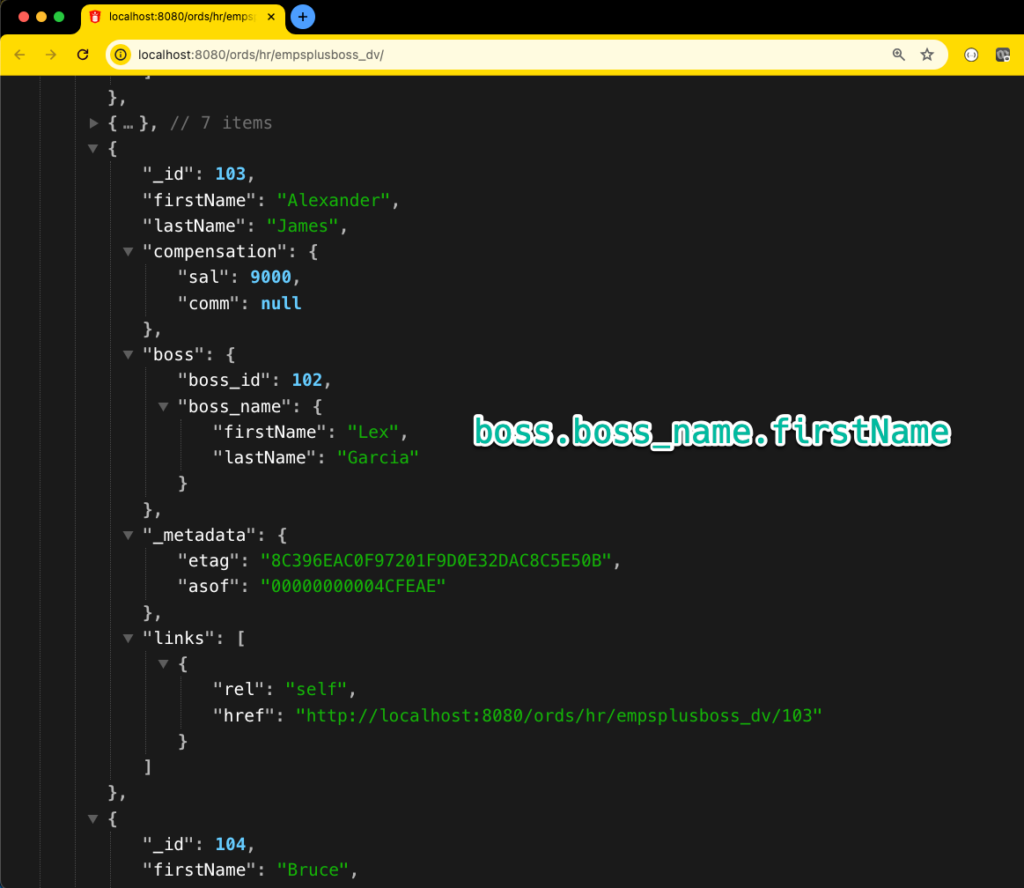
So let’s GET our employees!
GET ords/hr/empsplusboss_dv/?q={“boss.boss_name.firstName”:{“$eq”:”Steven”}}
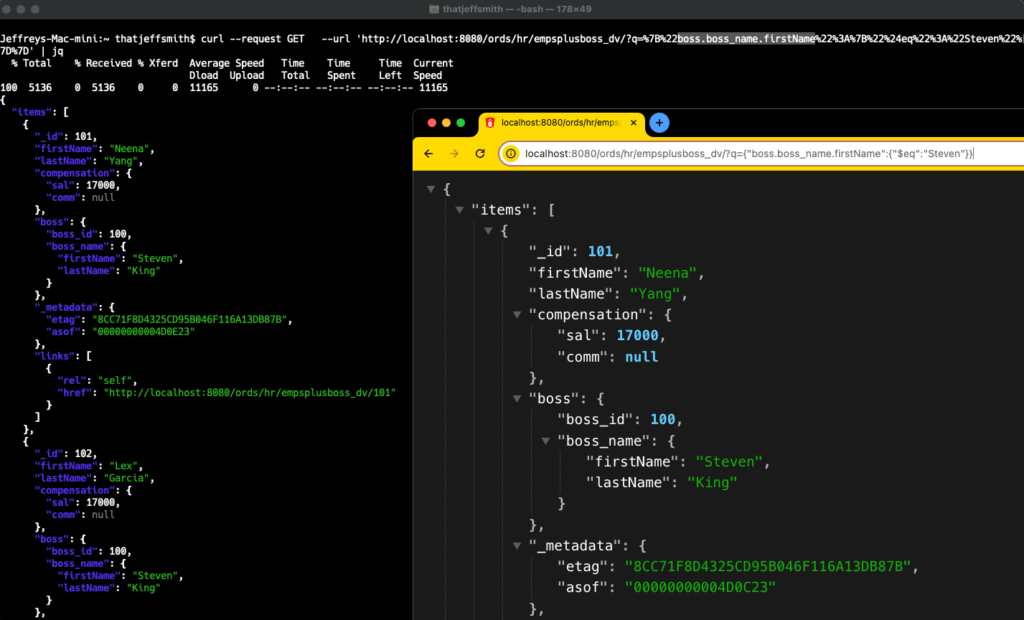
But wait, this is boring, how about something more likely to be used in the real world?
I like to start with the boring and simple, and scale out from there. And, I thought it was cool that you could use a self-referential table join to construct JSON objects with Duality Views.
But, I will award a point, touche, for the astute observation fair reader.
I have a STUDENT_SCHEDULE object via a Duality View…which looks like this –
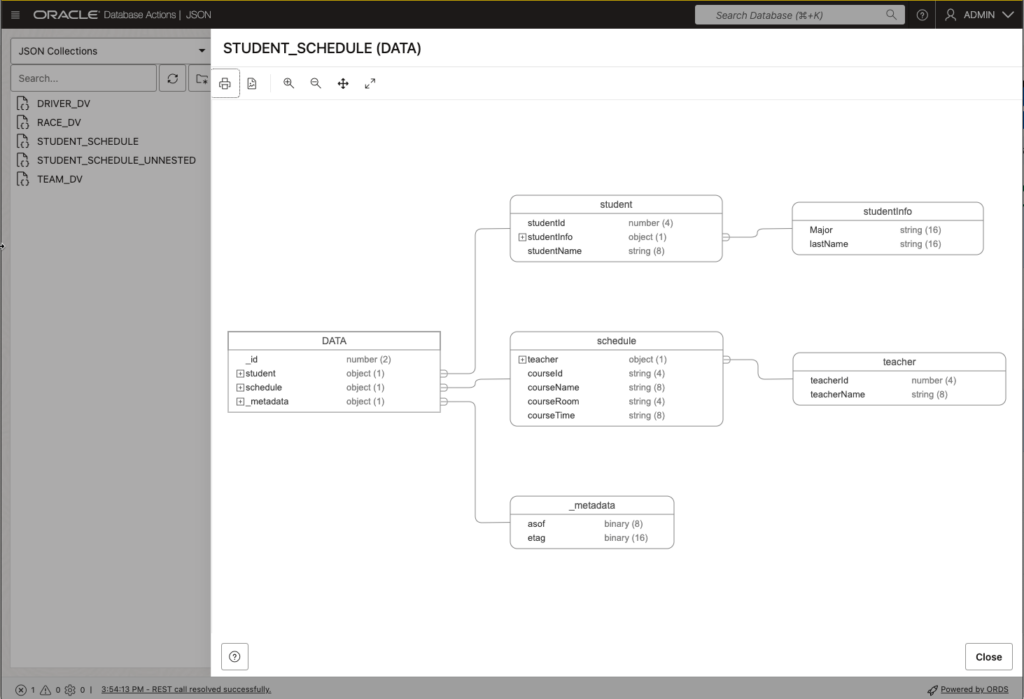
And when I do GET on this REST Enabled Duality View, the data comes back like so –
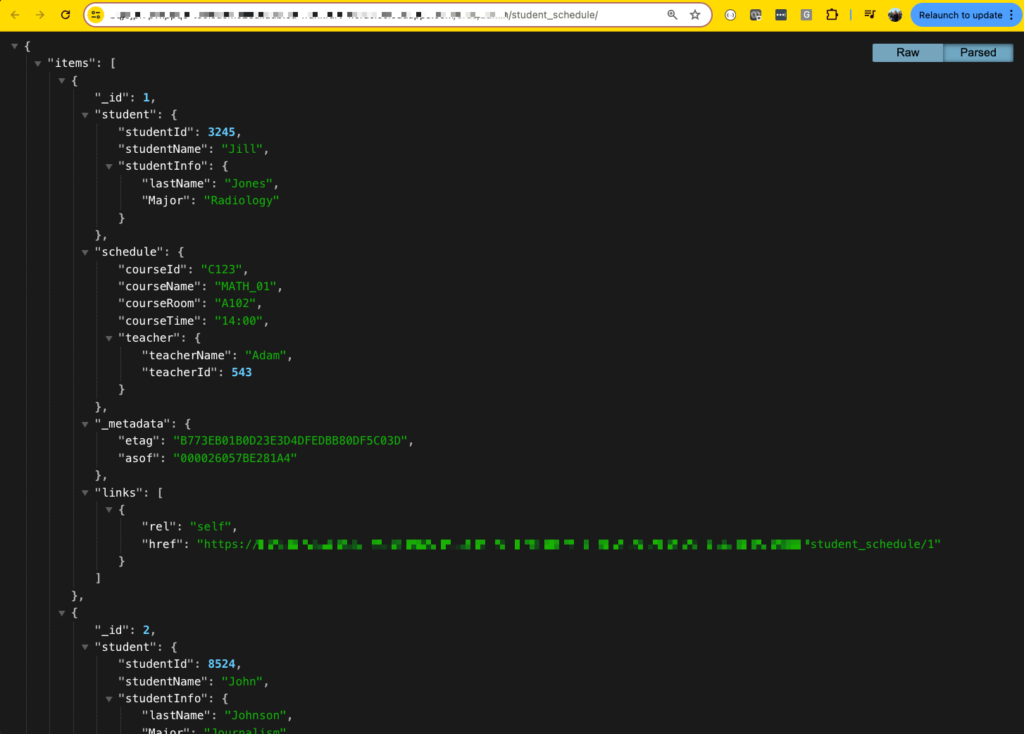
The Duality View is composed of data sourced from multiple tables, and some of those tables have JSON columns.
I only want to see student schedules that have the MATH_01 course included..
GET …ords/schools/student_schedule/?q={“schedule.courseName”:{“$eq”:”MATH_01″}}
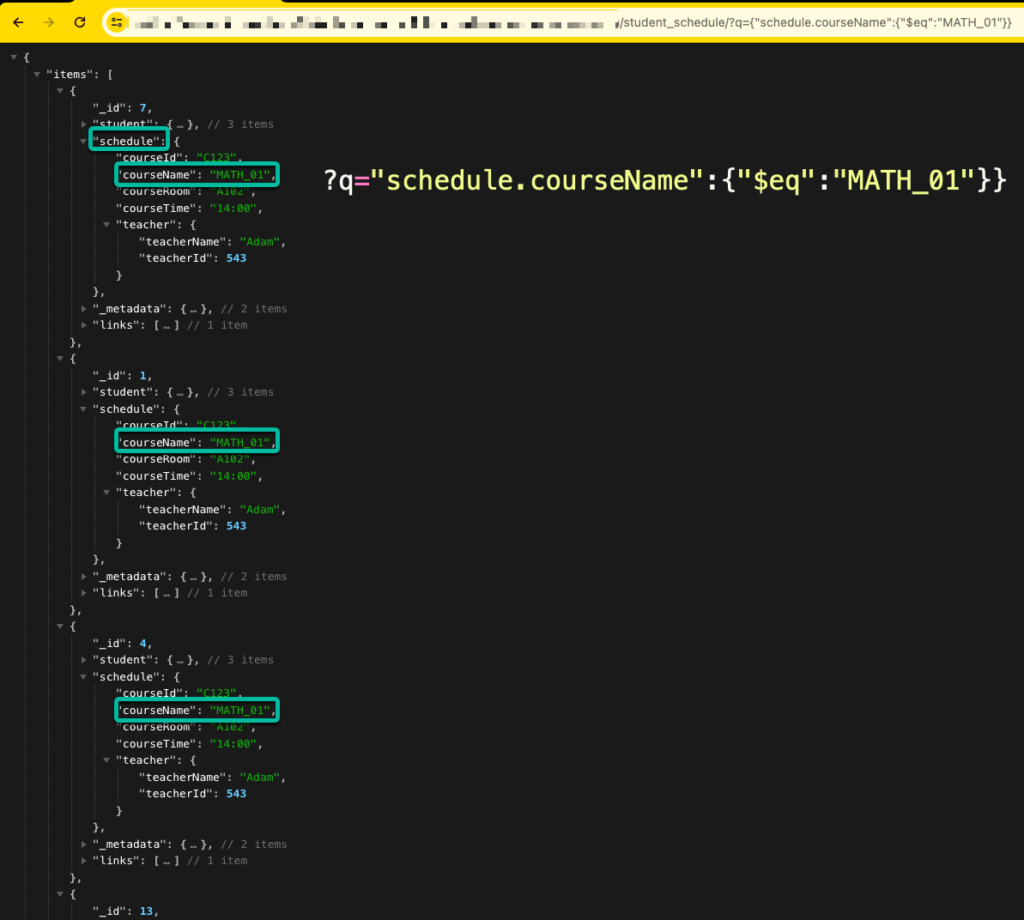


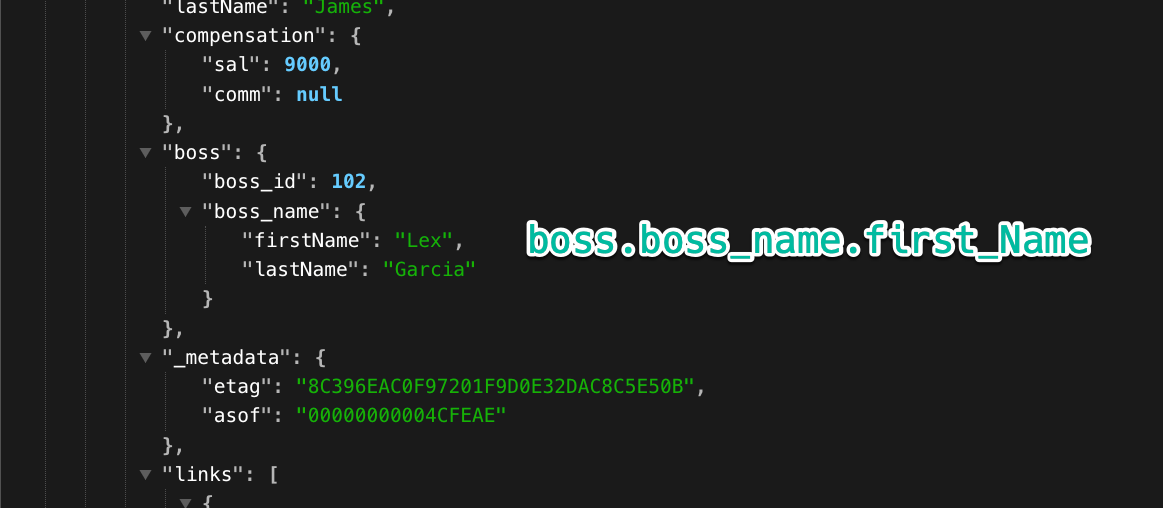

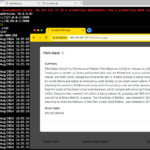


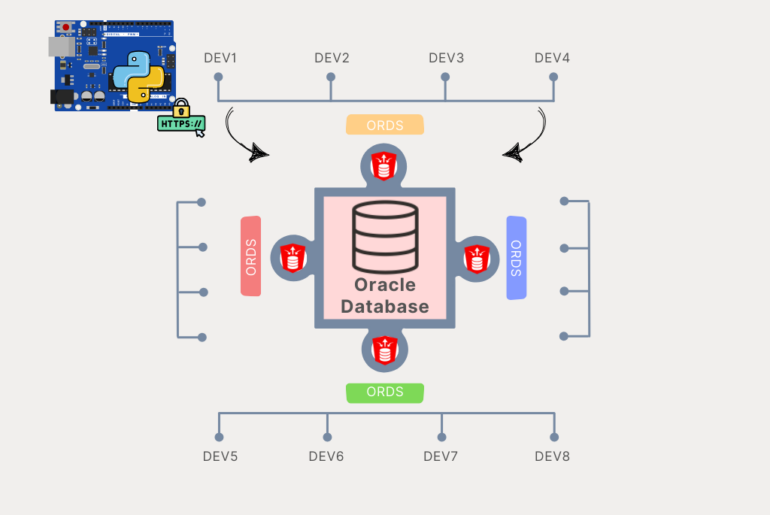
4 Comments
Hi,
Is it possible to use the nested syntax query for ORDS APIs that were not created using autoREST, such as q={“foo.bar”:{“$eq”:”baz”}}?
I’ve created a duality view and selected it in my ORDS API. Everything works as expected, but the new query syntax doesn’t seem to work in this case.
We still need to use custom ORDS APIs because they contain business logic, such as checking the permissions or translating content based on the user, etc.
Thanks
Those are available for duality views AutoREST endpoints OR using SODA REST APIs
Sounds like you might need a plsql handler where you take any input you want and write your own code to navigate the JSON content.
…..We want to do an equality filter on boss.boss_name.first_Name from our Duality View…..
the path expression “boss.boss_name.first_Name” is Incorrect.
instead it should be “boss.boss_name.firstName” as per the sample json payload listed there…
Thanks, it’s fixed now 🙂